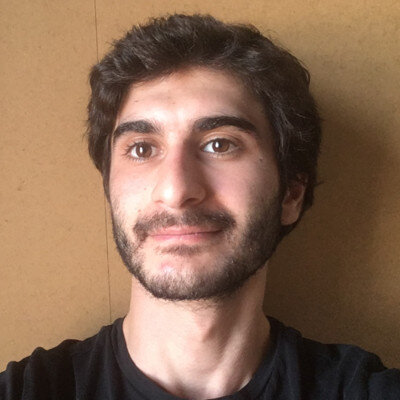Interview with Omar El-Kurdi, MA Psychology
By Nikki Jennings
15 July 2021
Omar El-Kurdi recently graduated from Webster University Leiden– receiving his MA in Psychology, with an Emphasis in Counseling Psychology. In this interview, Omar shares about his experience in the graduate psychology program– from completing his thesis to working directly with clients. He also discusses who influenced him the most from the Webster Leiden Campus, as well as his inspirations for working in the psychology field.
Nikki: Why did you decide to study at Webster University Leiden?
Omar: I decided to study at Webster University because I liked what the program had to offer with regards to the practical work. My sister-in-law graduated from the same program, and I enjoyed hearing about her experience. That is when I applied for the psychology program at Webster. I chose Leiden because I enjoyed visiting this country in the past, I liked the aesthetic of it, and most Dutch people speak English as well.
Nikki: This program is unique for its scientist-practitioner model. Why is a scientist practitioner model an important approach when training as a psychologist?
Omar: It is as important to understand psychological theory as it is to apply it in an environment that involves you (the person studying), as well as the person you are treating. We can all study the same research, learn about the same theories, whereas applying these concepts in your practice involves allowing the information to be integrated to who you are as a person. The understanding of the theory may be the same, but the application of it will differ from one individual to another. this program allowed us to practice with clients who came with light problems, and others that were heavy. This allowed us to get used to the role and do what we are essentially studying for.
Nikki: What is your biggest lesson learned while seeing your clients during the program?
Omar: With all the theories and types of therapy that I am interested in, there are many directions I can go in with this question. The most important thing I learned when looking at the big picture is to remain curious about each client, not to assume things, and to listen closely. This can all fall under the umbrella of conscious presence, this presence is what allows healing to begin with, the rest is in your knowledge and how to apply it.
Nikki: Do you think counseling will evolve in the future to new mediums i.e. more online?
Omar: The world has shifted significantly in the past year to online work, while this was a smaller area of counseling in the past, it has grown a lot. Seeing the effectiveness of online therapy for countless individuals, I do believe that we will see a lot more online therapy in the future. This provides benefits such as using up less time in your day, the client being in the comfort of their own home during the sessions, it also allows for cheaper and more accessible counseling. There are clear downsides to this as a virtual presence may not be the same as an in-person presence, and it may be harder to pick up on certain cues (for both client and counselor).
Nikki: How was your experience working on the master’s thesis?
Omar: My experience working on my thesis was eye-opening, as I had to learn new information about research along the way, like learning to conduct thematic analysis, creating interview questions for qualitative research, reducing our bias, etc. I enjoyed the fact that this idea was something I was interested in and wanted to learn more about, which was the value of sentimental items, and I got to interview participants who had a lot to say about this topic. It is a long process, yet a satisfying one, and I would encourage people who have this assignment to spend time reflecting on what they want to know more about.
Nikki: Who influenced you the most during your past two years as a student, and how?
Omar: Paul Rakowski has been a big influence on me as a psychology student and as a person. I have known him for just over 2 years now as he taught some of my undergraduate courses as well as the master’s courses. Firstly, his method of teaching, which involves processing the information that we are learning, engages us to reflect on the information we take in, and to integrate the information in a way that is beneficial to us as students. Second, he is open to sharing his experience and knowledge with regards to what we are learning, his experience is deep and plentiful, and he has a strong sense of passion for his work. Third, his care for the students is apparent and makes us feel like we are in a safe environment to learn and appreciate the knowledge, and how to apply it in real situations. He has the student’s best interests at heart and one thing I learned is that this is important in connecting with the world around us, whether it is through improving in our profession or in our personal lives.
Nikki: What inspires you to be in this field of work?
Omar: I have always been interested in psychology; my thoughts have always surrounded the topic of how our minds work while growing up. I have a strong need to explore this vast unknown area which is ourselves and our mind and to understand it deeply, the same way a businessman may enjoy the process of developing a business. We have emotions, thoughts, behaviors, memories, external circumstances, relationships, and these all combine to make up an individual, I find this fascinating and an area worth exploring.
Nikki: What’s next for you after graduation?
Omar: I will be staying in the Netherlands to start working in counseling, either under an organization or to start up my own practice.
